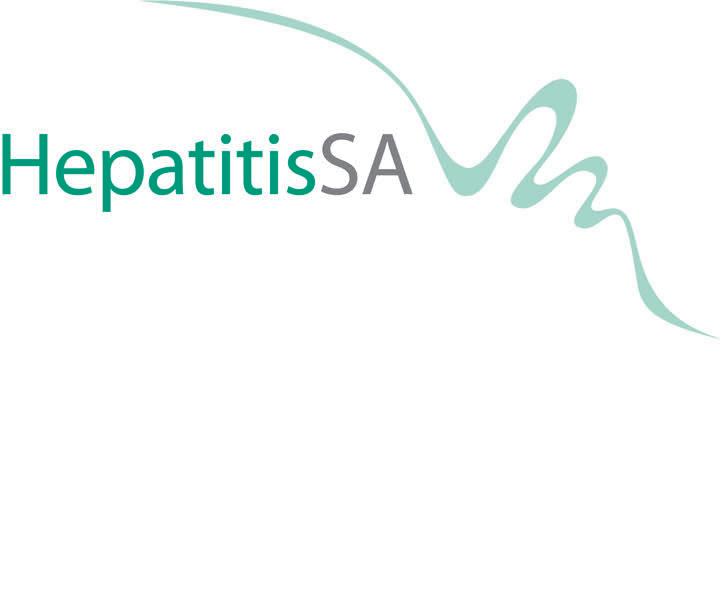Hepatitis



Is it a concern for trans & gender-diverse communities?

Cover image: Derived from a photo by Jorge Saavedra on
Unsplash
Did you know that blood-borne viruses can be transmitted via intramuscular injections? Hepatitis B and hepatitis C viruses are among the infections which can be transmitted in this way.

These viruses attack your liver and, over time, can lead to serious disease like liver failure or liver cancer. Hepatitis B and hepatitis C can be passed on through injecting equipment that had been used by someone living with these viruses, even if your injection is into muscle. Injecting practices such as double-dipping into hormone containers with another person or injecting from unclean surfaces are also transmission risks.

Basic Hepatitis Facts
Hepatitis B
Hepatitis B is transmitted through:
• Blood-to-bloodstream contact
• Sexual fluids passing through the mucous membrane in the vagina, anus, and even the eye
• Mother to infant during the birthing process.
There is a safe and effective vaccine against hepatitis B and it is the best protection. About 5% of adults infected with the virus will develop chronic hepatitis B. The reverse is true for children infected in early childhood—95% of them will develop chronic hepatitis B.
In Australia, all newborns are given hepatitis B vaccination and people from highrisk groups, including sex workers, can get free hepatitis B vaccination. For more information call Hepatitis SA (1800 437 222) or visit bit.ly/hb-vax.

Hep B PEP: Hepatitis B immunoglobulin (HBIG) is used as a post-exposure prophylaxis to reduce the risk of transmission after an exposure to hepatitis B. A single dose of HBIG is given, as well as three doses of hepatitis B vaccine over six months.
There is currently no cure for hepatitis B but there is effective treatment which can keep the virus in check. These are given at particular stages of the disease. Everyone with hepatitis B needs regular check-ups to monitor disease progress, to see if they need treatment and ensure they receive it at the right time.
6 out of 10 South Australians with hepatitis B don’t know they have it. A simple blood test will tell:
• if you are immune to hepatitis B,
• whether you’ve recovered from previous infection or
• if you have chronic hepatitis B.
Hepatitis B tests are not included in routine blood tests. To get tested for hepatitis B, talk to your GP.
Hepatitis C

Hepatitis C is transmitted when blood with the virus enters your bloodstream. In Australia, this is mainly through unsterile injecting practices.

There is no vaccine for hepatitis C but hepatitis C can be cured with highly effective medicines that have very few side effects. For most people, hepatitis C treatment consists of a daily tablet taken over 8 to 12 weeks. Cure rate is close to 100%.
It is important to know that being cured of hepatitis C will not protect you from getting infected again, but you can get re-treatment.
Hepatitis C testing is not included in routine blood tests. To find out if you have hepatitis C, ask your doctor for a test.
If you are living with hepatitis B or hepatitis C, and feel that your doctor is not familiar with the management of your condition, call Hepatitis SA on 1800 437 222.
Where can I get clean equipment?

You are welcome to get free injecting equipment from any Clean Needle Program (CNP) site in South Australia. CNPs are government funded services aimed at reducing blood borne virus transmission and are open to people of any age
Peer-staffed CNPs

Certain CNP sites are staffed by CNP peer educators – people with lived experience of injecting. They can share their knowledge and experience with you in a non-judgemental way and can provide additional harm reduction advice, such as information on filtering oil based substances.
Some sites are always staffed by a peer; others have peers rostered on specific days at specific times. To find your nearest peer-staffed CNP site, visit hepatitissa.asn.au/169 or contact Hepatitis SA on 1800 437 222.

Premade hormone pack
SIN distributes a premade hormone injecting pack which consists of:
• 10 x 18 gage drawing needle,
• 10 x 21 gage gage syringe,
• 10 x 5m barrels,
• 20 x medi swabs,
• 10 x band aids and
• 1 x fit tube.
Choosing your own equipment
You don’t have to choose the premade pack. You’re always welcome select your own injecting equipment. It is also important to note that it is safer to filter the substance before use if you are injecting:
- oil-based substances or
- substances not made by a pharmaceutical company and therefore not guaranteed to be sterile.
Filters are available at some CNPs. To find out where they are available and for more information about filtering, please call Hepatitis SA and speak to the CNP Project Coordinator.
What about confidentiality and my privacy?
• CNPs provide a confidential service. You will not be asked why you need the equipment, or to give your name and contact details.
• The CNP worker will ask what equipment you require and provide it to you if it’s in stock. Most sites do not provide bags for carrying the equipment, so please bring your own.

• All CNPs provide free syringes, swabs, disposal containers and disposal facilities. However, some sites have a wider array of injecting equipment than others, such as various barrel and tip sizes. Some CNPs also stock specialised equipment which you can get at a small cost. These include filters, sterile water and tourniquets. Call Hepatitis SA to find out which sites carry a broader range of items.
• To ensure that CNPs are addressing community needs, CNP workers will ask you if you are happy to provide some non-identifying data. It is entirely up to you whether or not you answer the questions. Remember, this is a confidential service. You do not need to present any ID, so your answers will never be traced back to you.
How do I identify a CNP?



Clean Needle Program sites are identified with this symbol: If the service displays this sign, then you are in the right place.

Referrals and further information
Your visit to a CNP can be very quick if you wish. You can simply get your equipment and be on your way. However, please feel free to ask for a referral to any other services you require. Or if you do want more in-depth or tailored information, please call Hepatitis SA(1800 437 222) and talk to the CNP Peer Project Coordinator.
SIN trans and gender-diverse services


SIN provides Free Safer Injecting equipment and BBV education in a welcoming environment through our Clean Needle Program (CNP) and is available to all communities. SIN operates Tuesday to Friday 9:30am to 5:00pm offering education, advocacy and peer support for all trans and gender diverse sex workers living or touring in South Australia. Our peer worker, Heather, is available, Thursday and Friday 11am to 5pm.

For more information:
Kaurna Country
3 Hackney Rd
Hackney 5063
Phone: 1800 437 222
9am–5pm Mon–Fri
admin@hepsa.asn.au
hepsa.asn.au
220 South Road
Mile End
Phone: 8351 7626
9am–5pm Tues–Fri info@sin.org.au
Trans project worker: 0450 557 626 or trans@sin.org.au sin.org.au
For information about BBV and STI screening and treatment, call SAMESH on 08 7099 5300 or the Adelaide Sexual Health Centr e on 08 7117 2800.
SA Health has contributed funds towards this program.
Free hepatitis A, B and C information, confidential and non-judgemental support, referrals and printed resources.

We can help. Talk to us. Call or web chat 9am–5pm, Mon–Fri
Information Support
1800 437 222 hepsa.asn.au
Last updated: August 2021




















